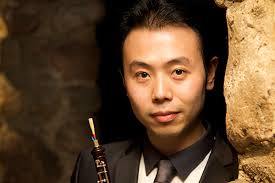What’s Haydn like in his smalls?
mainFrom the Lebrecht Album of the Week:
Haydn Symphonies in piano transcriptions…
What’s the music like? If I had listened blindfold to the Oxford Symphony on solo piano, I would have guessed it to be an early Beethoven sonata, somewhere between opus 2 and 10. Classically correct, the music keeps testing the limits of the genre. Not in any radical way by means of key-change or naughty chord, but by the suggestion that there are more ways than one to resolve an opening statement (something Boris Johnson will have to learn very soon)…
Read on here.
And here.






Oh no! What is it with this trend in recording reductions? Mozart symphonies transcribed for string quartet? Pass. Haydn symphonies transcribed for piano? Pass. Consider that Haydn wrote superb and fiendishly difficult piano sonatas. And so on.
Performers and audiences want something new which is in the same musical language as the well-worn repertoire. Music by minor composers from history are mostly quite boring. But it is impossible to discover a great composer from the past. So, rather than playing the boring works by Joachim Alzheimer, Telemann, Dittersdorf and Hummel, symphonies of great composers are transcribed. And because most of these works derive their effects from the interrelationships of the notes, so: something rather abstract, the notes also work well in transcription.
I’ve got to agree with Caravaggio.
That type of solo or small chamber group transcription was made for amateur musicians to play at home because they had no opportunities to hear the original compositions.
Two points:
a) the day of home amateur musicians gathering around to play chamber music is, sadly, long gone, and
b) recorded music gives the chance to whoever wants to, even those living far from concert halls, to hear the originals.
I suppose some pianists might play the solo transcriptions, but I doubt it: the pianists I know would not waste valuable practice time playing music they have no intention of performing in public. And transcriptions of Haydn symphonies are extremely unlikely to pop up on a piano recital program.
To Caravaggio, and Greg Bottini:
Playing, and listening to ‘reductions’ was the rule before the age of recorded sound. A good reduction, often done by the composer himself (e.g. Brahms) or approved by the composer, can give a deeper insight in the work.
Check this, for example:
https://www.amazon.co.uk/Tragic-Overture-Op-Garben-Zilberstein/dp/B00006L70S/ref=sr_1_3?keywords=brahms+zilberstein&qid=1564384308&s=music&sr=1-3
These do actually sound really good on the piano. I wouldn’t have expected it.